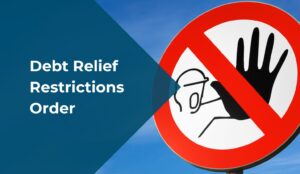Debt can feel like a heavy burden, limiting financial freedom and causing stress. However, with the right strategies, you can take control of your finances and work towards a debt-free future. Here are some effective steps to regain financial stability:
1. Assess Your Financial Situation
Start by taking a close look at your income, expenses, and outstanding debts. Create a comprehensive list of your debts, including balances, interest rates, and minimum payments. This will help you understand your financial position and develop a plan of action.
2. Create a Realistic Budget
A well-structured budget ensures you allocate funds wisely. Identify areas where you can cut expenses and redirect savings toward debt repayment. Prioritize essential expenses and set aside a portion of your income for emergency savings.
3. Prioritize Debt Repayment Strategies
Consider using one of these proven debt repayment methods:
Debt Snowball Method: Pay off the smallest debt first while making minimum payments on others. Once the smallest debt is cleared, move to the next smallest, building momentum.
Debt Avalanche Method: Focus on paying off the debt with the highest interest rate first while maintaining minimum payments on others. This method saves money on interest over time.
4. Negotiate with Creditors
If you’re struggling to make payments, reach out to creditors to discuss lower interest rates, extended repayment terms, or hardship programs. Many lenders are willing to work with borrowers to find manageable solutions.
5. Consolidate or Refinance Debt
Debt consolidation involves combining multiple debts into a single loan with a lower interest rate, making repayment more manageable. Refinancing options, such as balance transfer credit cards or personal loans, can also help reduce interest payments.
6. Increase Your Income
Look for ways to boost your earnings, such as taking on a side gig, freelancing, or asking for a raise. Applying extra income towards debt repayment accelerates your journey to financial freedom.
7. Avoid Accumulating More Debt
While repaying existing debt, avoid taking on new financial obligations. Use cash or debit cards instead of credit, and only spend within your means. Establishing healthy financial habits prevents falling back into debt.
8. Build an Emergency Fund
Unexpected expenses can lead to more debt if you’re unprepared. Aim to set aside at least three to six months’ worth of expenses in an emergency fund to cover unforeseen financial setbacks.
9. Seek Professional Assistance
If your debt situation feels overwhelming, consider speaking with a financial advisor or credit counselor. They can provide tailored advice, negotiate with creditors, and help create a structured repayment plan.
10. Stay Motivated and Track Progress
Debt repayment takes time and discipline. Celebrate small victories, such as paying off a loan or reducing credit card balances. Use financial apps or spreadsheets to track your progress and stay motivated.
By implementing these strategies, you can break free from debt and regain control over your finances. Stay committed, make informed decisions, and work toward a secure and financially independent future.





